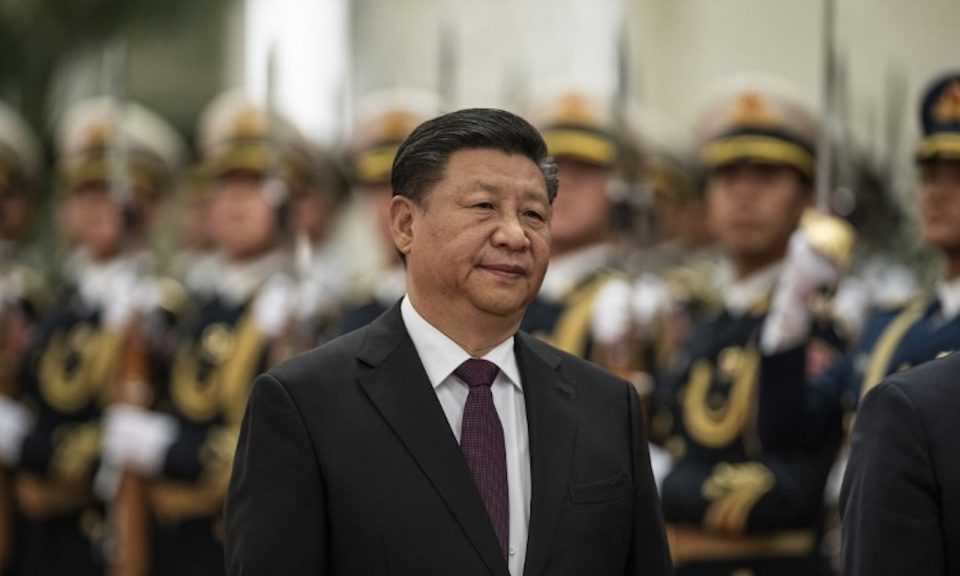President Xi to outline China’s economic future
18 December, 2018

Every word will be scrutinized. Every phrase will be dissected. When President Xi Jinping addresses the movers and shakers in China’s Communist Party on Tuesday, his speech will echo far beyond the confines of the Great Hall of the People.
Historically, this will be an ode to mark the 40th anniversary of “reform and opening up,” which was initiated by Paramount Leader Deng Xiaoping in 1978.
Domestically, it will be a rhetorical blueprint to deal with the country’s slowing economy, which has been buffeted by the trade war with the United States.
Fine-tuning monetary policy will be a priority after the People’s Bank of China Governor Yi Gang outlined initiatives following a crucial meeting of the powerful Politburo.
“The domestic economy is in a downward trend and needs relatively loose monetary conditions, but they cannot be too loose because lower domestic interest rates could hurt the yuan,” he told a conference on international trade and global governance at Tsinghua University last week.
Balancing act
“We will have to pay special attention to the market’s liquidity when adjusting monetary policy [and] step in in a timely manner,” Yi, who runs China’s de facto central bank, added.
But this will be a difficult balancing act for policymakers after Xi’s administration cracked down on cheap loans in a move to control ballooning corporate and local government debt during the past four years.
On Monday, the PBOC put flesh on the bones of Yi’s remarks when it released a statement stressing that it would increase “support for private and smaller companies,” making it easier for them to access credit.
Indeed, this fits into the Politburo’s key goals for 2019, including pressing ahead with “advanced technology manufacturing,” containing “financial risk” and “shaping a strong domestic market.”
Xi is likely to contain elements of these issues in a broad brushstroke speech, as well as reiterating his mantra for accelerated “reforms and opening up.”
Boosting investment and trade, while stimulating employment growth, are other areas that analysts believe will be highlighted during the Central Economic Work Conference, which runs in tandem with the 40th anniversary “celebrations” later this week.
“It’s generally assumed that you will need to expand fiscal and monetary support to achieve those goals,” Wang Shenshen, a strategist at Tokai Tokyo Research, told Reuters. “The market sentiment is being supported by expectations that there could be an announcement in that direction after the Central Economic Work Conference.”
Last week, a myriad of data released by the National Bureau of Statistics illustrated the problems facing Beijing, which have been exacerbated by slowing manufacturing activity and consumer spending.
Tax cuts have already been penciled in for middle-class shoppers hit by stagnating wages and rising prices.
To underline the depth of weakening growth, new car sales have run out of gas while statistics reveal that the property market is cooling after being squeezed by tighter credit restrictions.
Trade conflict
In part, these are byproducts of the trade conflict. But they are also symptoms of government moves to realign the overall economy.
Still, tackling these issues will require bold and creative solutions, according to Wei Jianing, a research fellow at the Development Research Center of the powerful State Council.
“Without reform, the space for macroeconomic control to work will be smaller. The relationship of institutional reform and opening-up should also be borne in mind. The condition that opening-up forces reform has changed. Reform has to be accelerated,” he said.
“Every time there is an economic difficulty, new ideas arise to drive reform. If China can take the 40th anniversary of opening-up as an opportunity to launch a new round of ideological emancipation, another round of reform and opening-up will occur, spurring new economic growth,” Wei added.
This has been a common theme among academics and economists during the past 12 months.
Moreover, it will be one that Xi will address when the CCP faithful finally take their seats in the symbolic Great Hall of the People in Beijing this week.
TAG(s):
